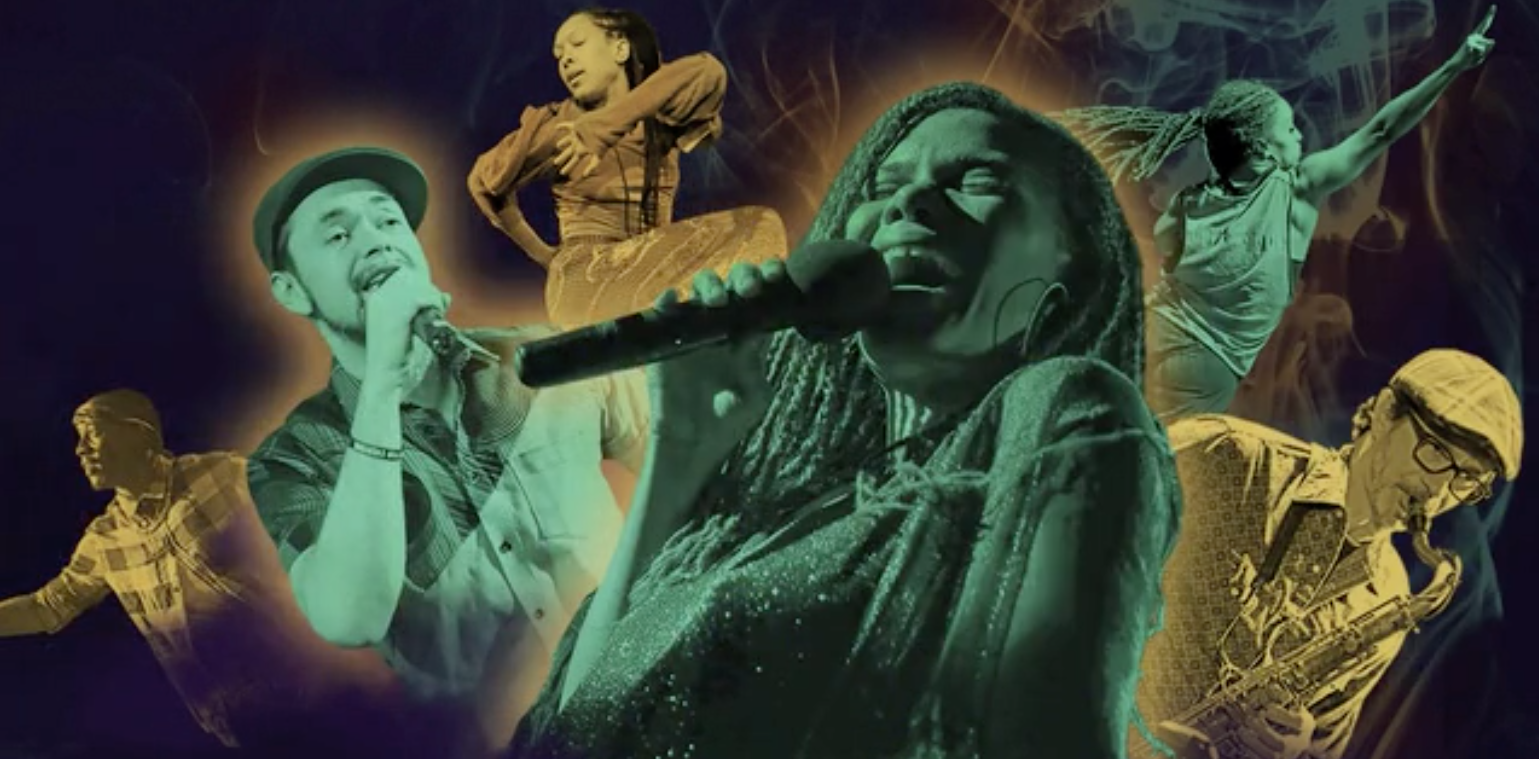 New York’s East Village this summer witnesses the world premiere of a multimedia extravaganza centered on the cultural politics of our favorite herb.
New York’s East Village this summer witnesses the world premiere of a multimedia extravaganza centered on the cultural politics of our favorite herb.
Five years in the making and twice postponed by COVID lockdowns, a theatrical concert dedicated to celebrating cannabis, and raising consciousness around the pant, has opened in New York.
Cannabis! A Viper Vaudeville uses music and projected images as well as dialogue to trace the journey of cannabis from the herblore of ancient India and China through bohemia, prohibition, counterculture and finally legalization.
Running through July 31 at La Mama Experimental Theatre Club, a venerable venue in the East Village, the show is written by Baba Israel, who serves as MC, with music composed by Grace Galu, who performs on vocals and guitar as the “Sativa Diva.” Israel’s longtime outfit Soul Inscribed serves as the back-up band, and there is also an ensemble of dancers.
Cannabis history in music, word and image
After a brief passage over thousands of years, in which cannabis went from the earliest botanical references of the ancient world to being the muse of French poets like Balzac and Baudelaire, the herb crosses the Atlantic to the Americas—woven into the “hair of the enslaved.” This refers to the tradition of African crop seeds—including cannabis—being smuggled onto the slave ships by this means during the Middle Passage.
The link between cannabis prohibition and racism is emphasized. African American culture nurtured cannabis, as manifested in musical samples like Fats Waller’s “The Reefer Song” (with its refrain “When you’re a viper,” jazz slang for herb aficionados) and Ella Fitzgerald’s “When I Get Low I Get High.”
Louis Armstrong’s rendering of “La Cucaracha” speaks to use of cannabis by Pancho Villa’s troops in the Mexican Revolution. But this meant backlash north of the border, with “marihuana” mixed up in the white mind with subversive Mexican immigrants. Lurid newspaper clips from the period inform us that California criminalized the herb amid such fears in 1913, Texas in 1919.
And when crusading federal bureaucrat Harry Anslinger launched his campaign to criminalize nationwide in the 1930s, he played to the most blatant and ugly stigmatization of both Mexicans and Blacks—again portrayed in period images.
But the beatniks were starting to popularize pot among white folks just as the civil rights movement was taking off in the ‘50s. And it all came together in the countercultural explosion of the ‘60s, punctuated by Bob Dylan’s “Rainy Day Women” (with its refrain “Everybody must get stoned”) and the Beatles’ “(I Get High) With a Little Help from My Friends.”
This again meant a backlash, in the “drug wars” and mass incarceration of the Nixon and Reagan eras.
The origins of the legalization movement are depicted in the groundbreaking efforts of San Francisco activists Dennis Peron and Mary Jane “Brownie Mary” Rathbun, who provided cannabis to AIDS patients who needed it to survive, in an open challenge to the authorities. The final generation of the narrative takes us from San Francisco’s 1991 voter initiative to allow medical use in the city to the 2021 law legalizing the weed in New York state. The transformation is set to anthems such as Bob Markey’s “Kaya.”
This chronology is inspired by Martin A. Lee’s 2021 book Smoke Signals: A Social History of Marijuana.
After much didacticism, the show has its poignant moments. One uses an improvisatory excursion and expressive dance to depict a war veteran’s journey from PTSD to relief from cannabis. In another, Israel describes how his mom, Pamela Mayo Israel—a veteran of the pioneering experimental Living Theatre troupe, now suffering from dementia—uses cannabis to overcome confusion and tantrums. She now has a fanbase for video streams of her dancing.
Confrontational theater
The show, developed through a residency at HERE, the same Lower Manhattan theater that was an incubator for The Vagina Monologues, explicitly aspires to be a vehicle for activism. Each performance ends with a short presentation by a representative of New York’s cannabis community.
The night I attended, July 20, this was Zulai Romero of the Brooklyn cannabis start-up Muz Muz, who expressed her hope New Yorkers “will support communities of color as the MSOs move in.” This is a reference to the multi-state operators now preparing to swoop on New York’s market.
July 20 also happened to be Grace Galu’s birthday, and there was Manhattan cheesecake to go around at a small after-party.
Asked for a few words at the after-party, Galu responded: “Culture, community, celebration! But also grief, for those who died in prison or during arrest, or of illness because they didn’t have access to cannabis—all those who didn’t make it to celebrate legalization.”
Summing up the spirit of the production, she concludes: “So come see a razzle-dazzle play about cannabis! But it’s not frivolous—it’s about the profound consequences both of its use and its prohibition. We think that theater should be somewhat uncomfortable and confronting.”
Cross-post to Cannabis Now







Recent comments
2 weeks 4 days ago
2 weeks 4 days ago
5 weeks 5 days ago
6 weeks 4 days ago
10 weeks 4 days ago
14 weeks 3 days ago
18 weeks 3 days ago
19 weeks 1 day ago
29 weeks 1 day ago
33 weeks 2 days ago